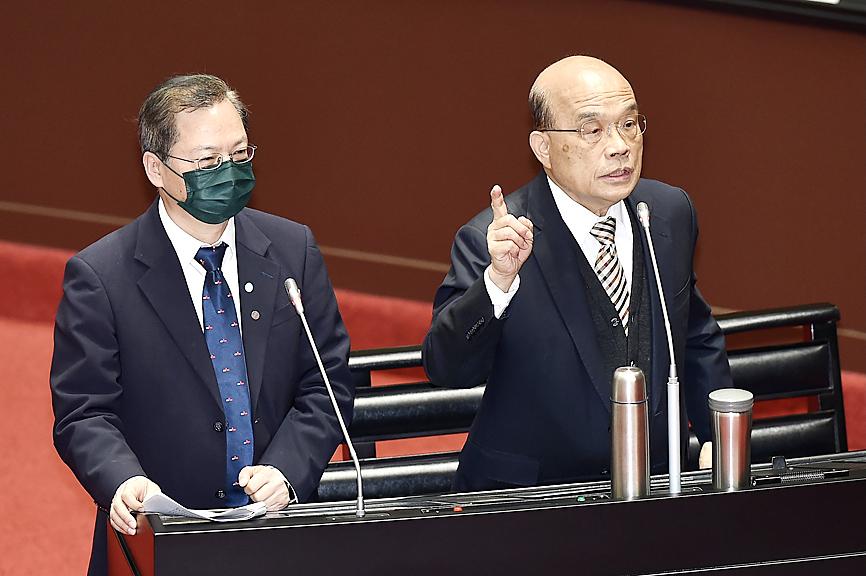The government has allocated NT$608 billion (US$21.35 billion) to spend on public infrastructure this year, in a bid to stimulate the economy amid the COVID-19 pandemic, the National Development Council (NDC) said on Monday.
While Taiwan’s response to COVID-19 has been largely successful, some industries have been hit hard by the pandemic, which has prompted the government to invest heavily in infrastructure as a way of increasing employment, NDC Minister Kung Ming-hsin (龔明鑫) said.
The annual public infrastructure allocation, which has exceeded NT$600 billion for the first time, would fund projects such as the Taoyuan Aerotropolis (桃園航空城), the acquisition of new trains by the Taiwan Railways Administration, the installation of air-conditioners in public schools, and the improvement of water collection and supply systems, the council said.

Photo: Tu Chien-jung, Taipei Times
Regarding the Taoyuan Aerotropolis project, more than NT$60 billion would be allocated in September for the acquisition of land, the council said.
The 4,500 hectare project, near Taiwan Taoyuan International Airport, is to be a modern industrial logistics center, development zone and urban residential area.
In the first two months of this year, government public works spending was NT$54.6 billion, an increase of NT$3.5 billion from last year, but it accounted for only 8.98 percent of the total allocation for the year, Kung said.
Government agencies are being urged to expedite work on infrastructure projects, he added.

South Korea’s equity benchmark yesterday crossed a new milestone just a month after surpassing the once-unthinkable 5,000 mark as surging global memory demand powers the country’s biggest chipmakers. The KOSPI advanced as much as 2.6 percent to a record 6,123, with Samsung Electronics Co and SK Hynix Inc each gaining more than 2 percent. With the benchmark now up 45 percent this year, South Korea’s stock market capitalization has also moved past France’s, following last month’s overtaking of Germany’s. Long overlooked by foreign funds, despite being undervalued, South Korean stocks have now emerged as clear winners in the global market. The so-called “artificial intelligence

‘SEISMIC SHIFT’: The researcher forecast there would be about 1.1 billion mobile shipments this year, down from 1.26 billion the prior year and erasing years of gains The global smartphone market is expected to contract 12.9 percent this year due to the unprecedented memorychip shortage, marking “a crisis like no other,” researcher International Data Corp (IDC) said. The new forecast, a dramatic revision down from earlier estimates, gives the latest accounting of the ongoing memory crunch that is affecting every corner of the electronics industry. The demand for advanced memory to power artificial intelligence (AI) tasks has drained global supply until well into next year and jeopardizes the business model of many smartphone makers. IDC forecast about 1.1 billion mobile shipments this year, down from 1.26 billion the prior

Chinese artificial intelligence (AI) start-up DeepSeek’s (深度求索) latest AI model, set to be released as soon as next week, was trained on Nvidia Corp’s most advanced AI chip, the Blackwell, a senior official of US President Donald Trump’s administration said on Monday, in what could represent a violation of US export controls. The US believes DeepSeek will remove the technical indicators that might reveal its use of American AI chips, the official said, adding that the Blackwells are likely clustered at its data center in Inner Mongolia, an autonomous region of China. The person declined to say how the US government received

People stand in a Pokemon store in Tokyo on Thursday. One of the world highest-grossing franchises is celebrated its 30th anniversary yesterday.